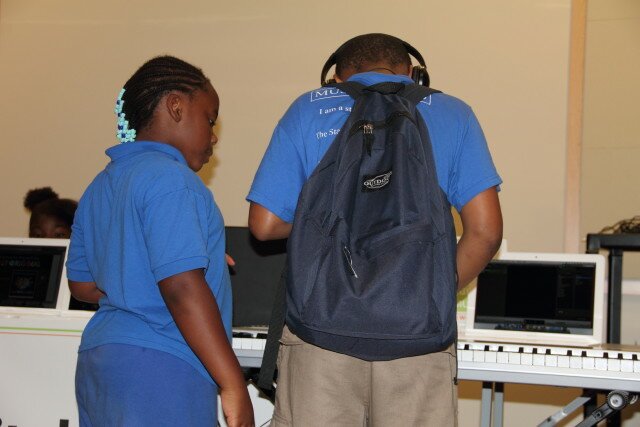Members of Chicago’s public computing and digital learning community come together every month to learn, share, and collaborate. Join us! Sign up at Meetup.com.
At the February Meetup the Connect Chicago Community learned about the Chicago Public Library’s Internet to Go Program, a Wi-Fi hotspot lending program that lets Chicagoans take Internet access home with them.
Representatives from the Cara Program, Safer Foundation, LISC Chicago, Instituto Progreso Latino, CompTIA, Microsoft Chicago, Comcast, the Smart Health Centers program, the Benton Foundation, and more gathered together to learn and collaborate. Michelle Frisque, Chief of Technology for the Chicago Public Library was our featured speaker for the Meetup.
The Internet to Go Pilot in Chicago was launched in 2015 and funded by the Knight Foundation and Google. The first three branches to receive Wi-Fi hotspots for lending (100 in each) were the Greater Grand Crossing Chicago Public Library Branch, the Douglass Chicago Public Library Branch, and the Brighton Park Chicago Public Library Branch. All of these pilot branches were in neighborhoods with below average broadband adoption.
Since the initial pilot, the Internet to Go Program has expanded. Here is Phase 2 of the program:
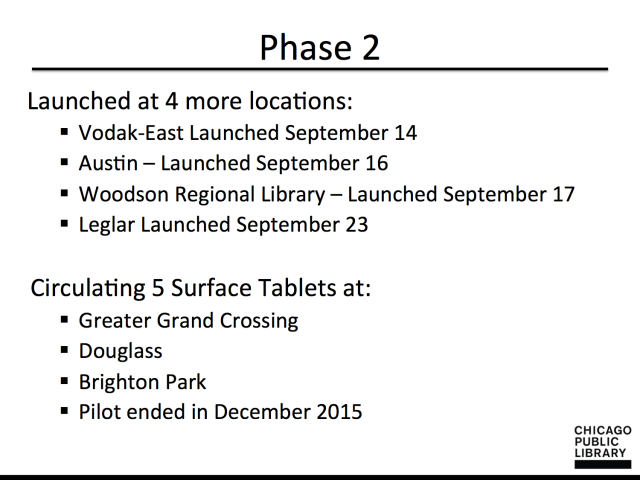
Here is Phase 3:
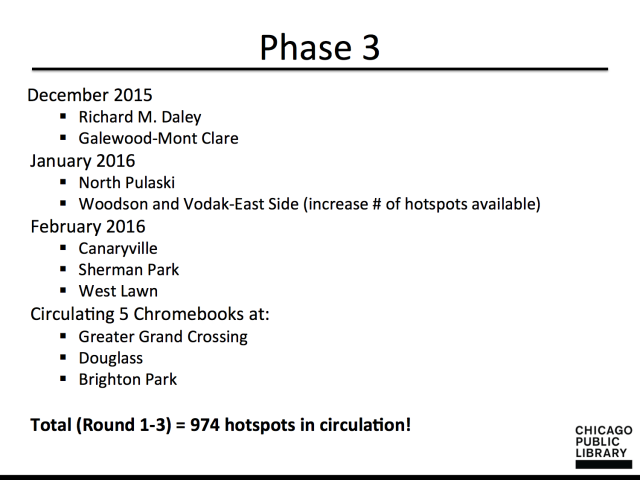
This demand for technology lending speaks to the evolution of Chicagoans’ information needs and the changing role of public libraries in the Digital Age. Pew Internet & American Life has done some surveying on this very topic — highlighting citizens’ changing expectations for services at libraries and low-income Americans’ higher reliance on library resources.
Michelle overviewed the short and long-term goals of the Internet to Go program:
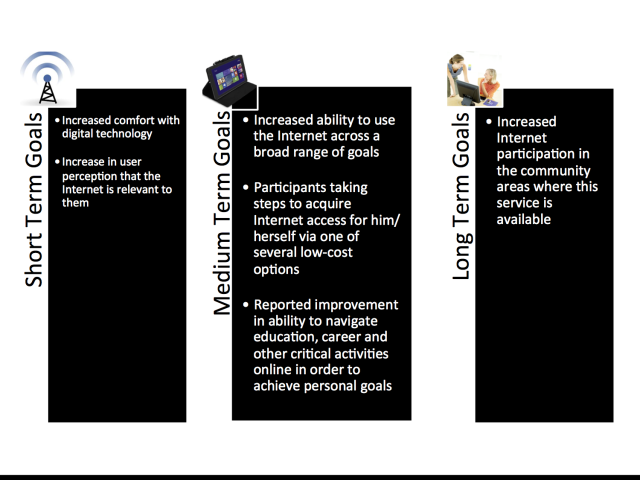
Of course, access is only one piece of the puzzle. The Wi-Fi lending program itself is complimented training by other services offered at the Chicago Public Library. CyberNavigator program, for instance, places digital trainers in branches for walk-in assistance. CyberNavigators provide one-on-one support and class support to patrons. This support ranges from assisting with resume building and job searching to helping with general online navigation.
There is also a website where residents can review the Internet to Go Wi-Fi hotspots. Here are a few samples of resident reviews:
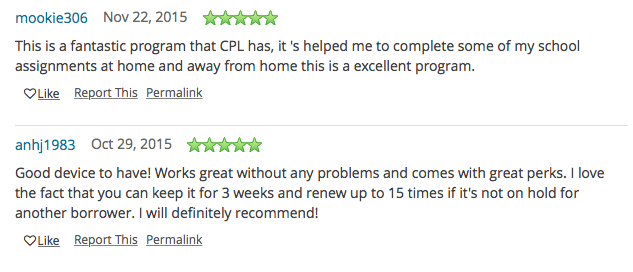
Chicago Public Library has tracked the lending data on Internet to Go as well as the Surface kits and Chrome kits available at the libraries:
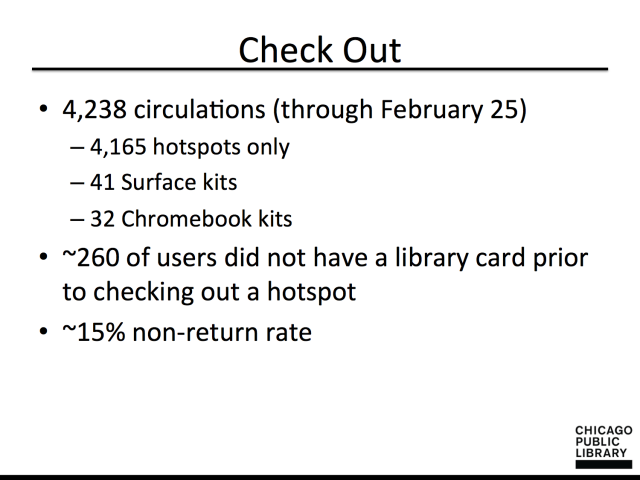
Perhaps most interesting was the information that Michelle had to share about who used the Internet to Go Wi-Fi Hotspots. The largest portion of users made less than $25,000 per year.
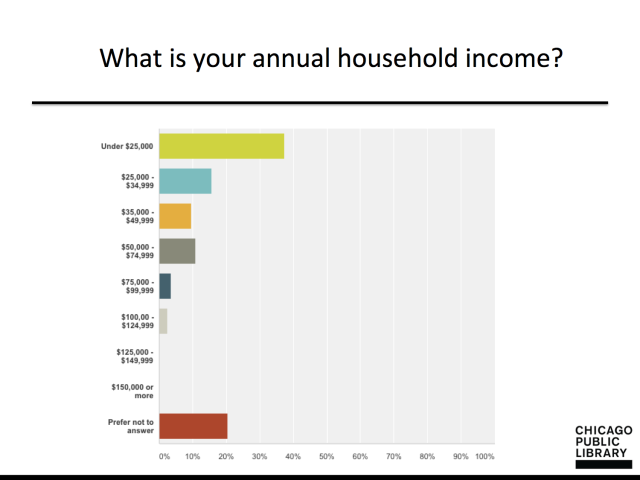
Thank you to everyone in the Connect Chicago Community – all trainers, program heads, coordinators, and advocates who enriched the discussion on technology access gaps and programming in our city.
Below are the resources from the February Meetup. Share and circulate!
- The Meetup slides
- The Chicago Public Library slides
- Meetup notes including community announcements & call-outs (add your own!)
- To learn more about the Internet to Go Program, see resident reviews, and or hold a hotspot for check out, go here.

